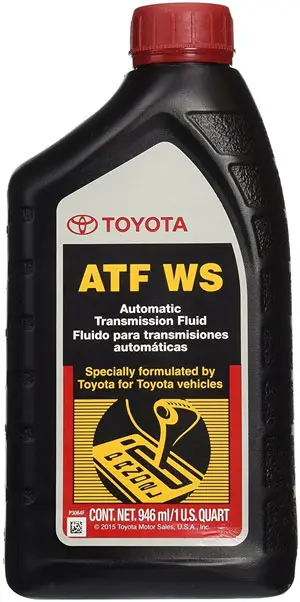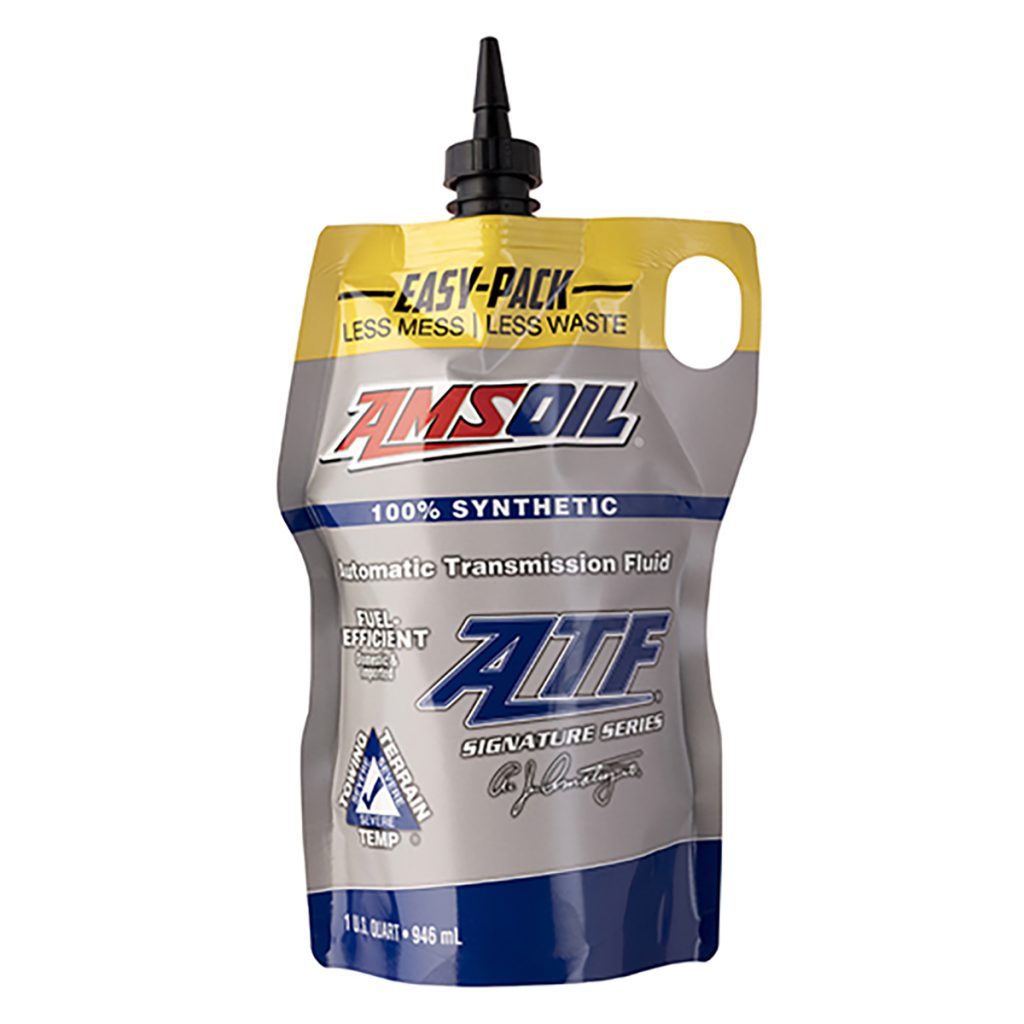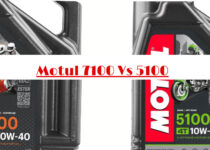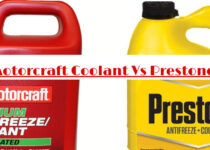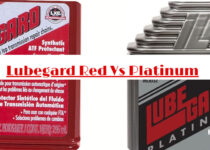Amsoil ATF vs Toyota WS | Key Differences & Best Choice
The difference between Amsoil ATF and Toyota WS comes down to OEM compliance versus extended performance. Toyota WS ATF is the factory fluid designed for compatibility, while Amsoil Synthetic ATF offers higher heat tolerance, longer drain intervals, and multi-vehicle use—making it a stronger choice for heavy-duty drivers and those keeping vehicles beyond warranty.
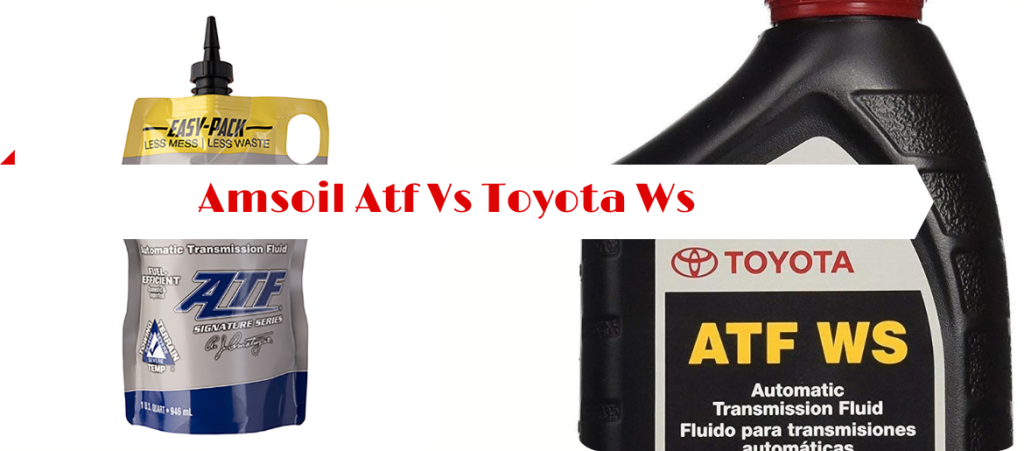
Quick Comparison: Amsoil ATF vs Toyota WS
| Feature | Amsoil ATF (Synthetic) | Toyota WS ATF (OEM) |
|---|---|---|
| Type | Multi-vehicle full synthetic ATF | Genuine Toyota World Standard (WS) |
| Compatibility | Meets/exceeds Toyota WS ATF specification | Toyota-specific fluid only |
| Heat Resistance | Superior (best for towing, off-road, performance) | Moderate—optimized for daily commuting |
| Cold Flow Performance | Excellent pour point & viscosity in low temps | Average—may thicken in extreme cold |
| Drain Interval | Extended (50k–100k miles with monitoring) | 30k–60k miles in real-world use |
| Cost | Higher per quart, but longer life cycle | Lower upfront, more frequent changes |
| Best For | Long-term reliability, high-mileage Toyotas | Warranty compliance, everyday drivers |
Why Toyota Owners Compare Amsoil ATF and Toyota WS
Toyota owners search for WS ATF substitutes when they:
- Want extended drain intervals and fewer fluid changes.
- Tow, haul, or drive in extreme climates.
- Plan to keep vehicles for 150,000+ miles.
- Wonder if Amsoil ATF is compatible with Toyota WS specifications.
This makes sense—OEM fluids are safe, but aftermarket synthetics often outperform in real-world stress conditions.
What is Toyota WS ATF?
Toyota WS (World Standard) is the factory-fill automatic transmission fluid for most modern Toyota vehicles.
Toyota WS Key Specs:
- Low-viscosity formulation to improve fuel efficiency.
- Meets strict OEM Toyota WS ATF specification.
- Marketed as a “lifetime fluid” but in practice, experts recommend changing around 60,000 miles (30,000 in severe duty).
Pros of Toyota WS:
- 100% OEM-approved and warranty safe.
- Affordable compared to synthetic aftermarket ATFs.
- Tuned specifically for Toyota transmission calibration.
Cons of Toyota WS:
- Limited cold flow performance in extreme winter climates.
- Breaks down faster under high heat (towing, mountain driving).
- Cannot be used in non-Toyota vehicles.
What is Amsoil Synthetic ATF?
Amsoil Multi-Vehicle Synthetic ATF is engineered to meet or exceed OEM standards—including Toyota WS compatibility.
Amsoil ATF Key Specs:
- Full synthetic formula with advanced detergents.
- Cold flow performance superior to OEM WS—important in northern climates.
- High resistance to oxidation, varnish, and heat-related breakdown.
- Suitable for multiple brands, not just Toyota.
Pros of Amsoil ATF:
- Extended drain intervals (up to 100k miles with proper monitoring).
- Superior viscosity stability in both hot and cold conditions.
- Protects against sludge and varnish in high-mileage transmissions.
Cons of Amsoil ATF:
- Higher upfront cost.
- Some dealerships may discourage non-OEM use during warranty.
Compatibility: Can Amsoil ATF Replace Toyota WS?
Yes—Amsoil ATF is compatible with Toyota WS. It’s one of the most frequently discussed WS ATF substitutes on Toyota forums.
However:
- If your Toyota is still under factory warranty, stick with WS to avoid disputes.
- For vehicles out of warranty, Amsoil ATF provides longer-lasting protection and is often chosen by Toyota Tacoma, 4Runner, and Highlander owners who tow or drive in extreme heat.
Performance Comparison: Amsoil ATF vs Toyota WS
1. Heat Tolerance
- Toyota WS: Designed for normal driving but can thin out at sustained high temps.
- Amsoil ATF: Better oxidation resistance, ideal for towing, mountain driving, or off-road Toyota trucks.
2. Cold Flow Performance
- Toyota WS: Adequate but not exceptional in sub-zero conditions.
- Amsoil ATF: Lower pour point, ensuring smoother winter shifts and less startup wear.
3. Drain Intervals
- Toyota WS: Real-world changes every 30k–60k miles.
- Amsoil ATF: Can safely extend to 100k with proper transmission maintenance.
4. Shift Quality
- Toyota WS: Tuned for factory calibration; smooth when new but degrades faster.
- Amsoil ATF: Maintains shift firmness and smoothness longer due to stable viscosity.
Cost Analysis: Toyota WS vs Amsoil ATF
Let’s compare costs for a Toyota Camry driven 150,000 miles.
- Toyota WS:
- Service every ~60k miles → 3 changes.
- ~$150 per service.
- Total = $450.
- Amsoil ATF:
- Service every ~100k miles → 1–2 changes.
- ~$200 per service.
- Total = $200–$400.
Result: While Toyota WS is cheaper per quart, Amsoil ATF’s extended drain interval lowers overall lifetime cost and reduces maintenance hassle.
Which Fluid is Best for Your Toyota?
Use Toyota WS if:
- Your car is under warranty.
- You only drive in normal conditions (commuting, city driving).
- You want the lowest upfront cost.
Use Amsoil ATF if:
- You drive a Toyota Tacoma, 4Runner, or Sequoia for towing.
- You live in very hot or cold climates.
- You want fewer fluid changes and extended transmission life.
Expert Opinion
Most Toyota service advisors recommend WS for warranty compliance. However, independent mechanics and Toyota enthusiasts note that Amsoil ATF outperforms WS in heat stability, cold flow performance, and longevity—especially for drivers who intend to keep their Toyota beyond 150,000 miles.
Conclusion
The Amsoil ATF vs Toyota WS debate is about OEM compliance vs aftermarket performance.
- Choose Toyota WS if you want factory-approved safety and short-term affordability.
- Choose Amsoil ATF if you prioritize extended drain intervals, better cold flow performance, and superior heat resistance for long-term reliability.
For high-mileage Toyota owners and those who tow or off-road, Amsoil ATF is the smarter investment.
FAQs: Amsoil ATF vs Toyota WS
1. Is Amsoil ATF compatible with Toyota WS ATF specification?
Yes, Amsoil ATF meets Toyota WS requirements and works safely in Toyota transmissions.
2. How often should Toyota WS ATF be changed?
Toyota markets it as “lifetime,” but experts recommend every 60,000 miles (30k for severe duty).
3. How long does Amsoil ATF last compared to Toyota WS?
Amsoil ATF can safely last up to 100,000 miles, while WS should be changed at half that.
4. Does Amsoil ATF improve shift firmness compared to WS?
Yes, thanks to stable viscosity, Amsoil often prevents the sluggish shifts common with aged WS.
5. What is the best ATF for towing with a Toyota Tacoma or 4Runner?
Amsoil ATF is highly recommended due to superior heat tolerance and cold flow performance.

